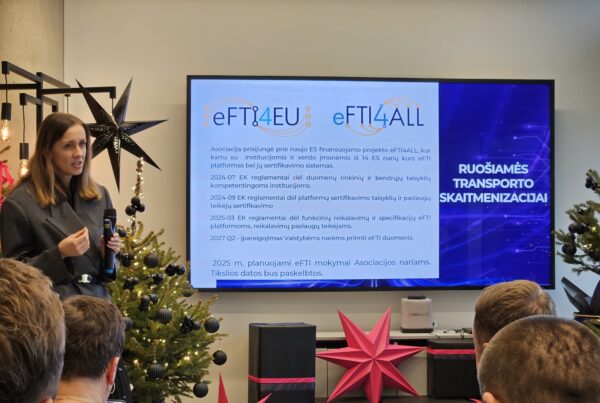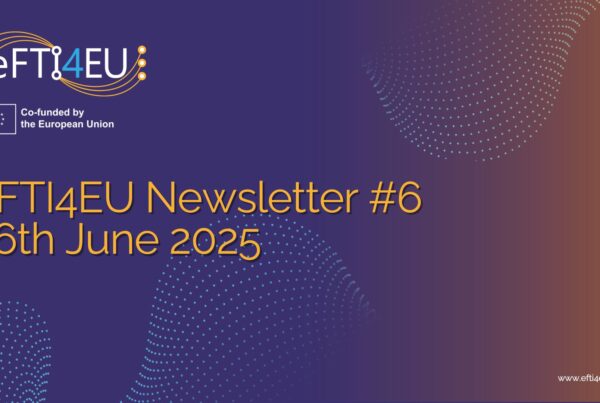On October 31, 2024, the PROLOG Supply Chain Conference was held at the Nordic Hotel Forum in Tallinn, Estonia, bringing together key stakeholders to discuss the future of logistics. One of the key sessions, led by DLK – Digital Logistics Center of Excellence (eFTI4EU Project Partner), focused on the paperless supply chain and freight transport. This session featured insights from the eFTI4EU project and the upcoming eFTI4All initiative.
The Need for Digitalization in Logistics
Enriko Laanemäe, Head of Digital Transport at the Estonian Ministry of Climate, highlighted the inefficiencies caused by paper-based logistics. He pointed out that eFTI Regulation 2020/1056 primarily imposes obligations on public authorities, but also creates opportunities for transport operators to streamline their processes. Digital transport documents could save carriers €10-15 per document, leading to estimated savings of €1 billion annually across the EU. Laanemäe also noted the environmental benefits of reducing paper use.
eFTI4EU and eFTI4All: Supporting the Digital Transition
Ulrika Hurt from TalTech and the Digital Logistics Center presented an update on the eFTI4EU project, outlining the roles of project partners and the legal and technical advancements in eFTI implementation. She also introduced eFTI4All, a new project aimed at developing and testing digital solutions for transport and logistics. The initiative will explore how businesses can adapt to digitalization, including the integration of existing systems with eFTI requirements.

Legal Challenges and Implementation in Estonia
Legal experts Indrek Kukk and Mart Kägu from TGS Baltic provided an overview of the regulatory impact of eFTI. Their analysis, conducted with TalTech and PwC for Estonia’s Ministry of Economic Affairs and Communications, emphasized that eFTI does not create a new legal framework but aligns with existing EU legislation. They urged businesses to start digitalizing now, comparing the transition to boarding a train to the future.
Business Process Optimization and Multimodal Transport
Katre Purga from Pro Ekspert, a service designer for eFTI, discussed business process optimization in digital logistics. She noted that successful digital transformation requires understanding regional logistics practices, interpretations of legislation, and security concerns. She also emphasized the importance of user-friendly digital systems and secure data exchange to build trust among stakeholders.
Addressing Industry Concerns
The session concluded with a panel discussion, where experts addressed concerns about cybersecurity, costs, and integration with existing business systems. Speakers reassured the audience that eFTI follows strict security standards and that digital platforms will operate in a competitive market, keeping costs reasonable.
As Estonia moves forward with eFTI implementation, discussions like this are crucial in helping businesses prepare for a fully digital supply chain.






